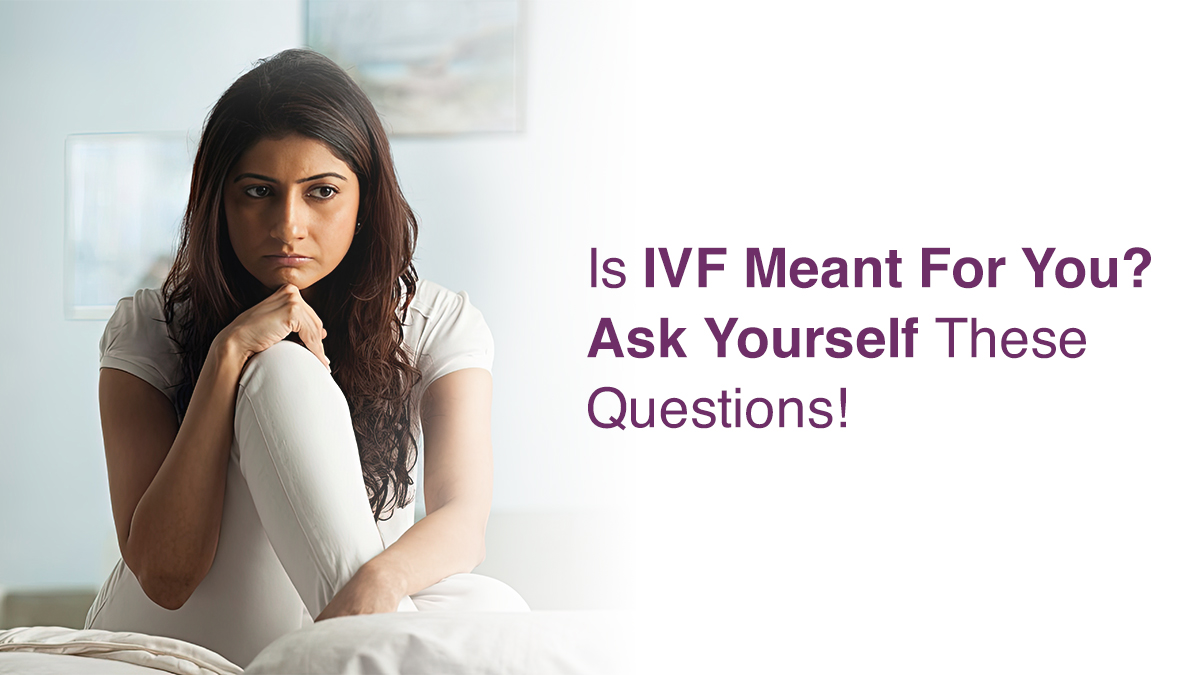In vitro fertilisation (IVF) has entirely changed the landscape of reproductive therapy, offering light to others,
who themselves were struggling to conceive a child naturally. Combining advanced technology with personal care has
enabled many to at some point in their lives take pleasure in motherhood, even amid complex medical or inexplicable
infertility challenges.
For people who want to start or enlarge their families, IVF is more than just a treatment; it’s a road to possibility
and resilience. Could IVF be the best option for you? Understanding your individual scenario is the first step
towards finding out.
What is IVF?
In vitro fertilisation (IVF) is a fertility treatment in which eggs and sperm are combined outside the body in a lab.
The resultant embryos are then implanted in the uterus with an intention of causing a fruitful pregnancy. IVF is
frequently advised for people or couples with fertility issues such as blocked or damaged fallopian tubes, male
factor infertility, ovulation abnormalities, endometriosis, or unexplained infertility.
Individuals with blocked or damaged fallopian tubes can benefit from IVF, which bypasses the fallopian tubes and
provides an effective method of conception. In cases of male factor infertility, where the male partner has a low
sperm count, poor sperm motility, or other sperm-related difficulties, IVF can be an effective treatment.
Women with irregular ovulation or polycystic ovarian syndrome (PCOS) may consider IVF to improve their chances of
conceiving. Individuals with severe endometriosis, a disorder that damages the uterine lining and lowers fertility,
may consider IVF. Furthermore, when the cause of infertility cannot be determined, IVF can be a viable alternative
for overcoming potential barriers to conception.
Ask Yourself These Questions to Determine If IVF Is Right for You
While IVF provides hope for many people, it is critical to consider a few factors before determining whether it is
the appropriate road to take. Here are some questions that can help you determine whether you fit the criteria for
undergoing IVF:
Have You Tried Other Fertility Treatments First?
Many couples look into less intrusive fertility therapies before deciding on IVF. Lifestyle changes, such as
improving diet, lowering stress, and addressing issues like smoking or weight, can sometimes naturally boost
fertility. Ovulation induction drugs such as Clomid or letrozole may help regulate ovulation in those who have
irregular cycles. Another prevalent approach is intrauterine insemination (IUI), which involves inserting sperm
directly into the uterus to boost the likelihood of fertilisation.
If these methods have not been effective, or if medical issues such as blocked fallopian tubes, severe male
infertility, or advanced maternal age are present, IVF may be the next logical step. A fertility specialist can
assess your situation and advise you on whether IVF is the best option for you.
What Is the Underlying Cause of Your Infertility?
Identifying the root cause of infertility is critical to selecting an appropriate treatment. Common reasons for women
include ovulation difficulties, endometriosis, and blocked fallopian tubes, while males may experience poor sperm
count or motility concerns. In rare cases, the cause remains unknown. IVF can alleviate many of these issues and
even provide insights into fertilisation when other treatments fail. A fertility professional can assist in
identifying the underlying issue and propose the best course of action.
How Old Are You?
It’s significant to factor in IVF success rates by age, as women under the age of 35 are more likely to succeed.
However, those above the age of 40 may have a lesser likelihood of success. Younger women have a better probability
of conception with IVF because the quality and quantity of eggs decrease with age. While there is no specific age
limit for IVF, success rates tend to decline dramatically after the age of 40. Therefore, age-related factors should
be taken into account when looking into your eligibility for IVF.
Do You Have Time to Commit to the IVF Process?
IVF requires a major time commitment, which includes numerous doctor appointments, procedures, and emotional support.
It is critical to determine whether you are prepared to devote the time, effort, and patience required throughout
the process.
How Do You Feel About the Financial Commitment?
Financial considerations should not be disregarded, as IVF is a costly treatment. Candidates should evaluate their
monetary circumstances and determine whether they have access to the resources required to seek therapy.
Are You Prepared for the Emotional Challenges of IVF?
Emotional readiness is also essential, as IVF may be an emotionally and physically difficult procedure. Candidates
must be prepared for the possible ups and downs associated with reproductive treatments.
Have You Consulted with a Fertility Specialist?
A fertility specialist may evaluate your specific circumstances, conduct appropriate tests, and walk you through
treatment choices, including IVF, to help you decide the best way ahead.
How Do You Feel About the Possibility of Twins or Multiples?
IVF raises the risk of multiple pregnancies with IVF since embryos can be transferred to enhance the probability of
success. This is why the chances of having twins increase with IVF. It is critical to examine the dangers and
benefits of this outcome with your fertility professional to ensure that you are prepared for all scenarios.
What Are Your Long-Term Goals for Family Building?
Consider whether you intend to have numerous children, the timing of future pregnancies, and your overall family
planning goals. Discussing these goals with a fertility doctor will help guide your treatment options, including how
IVF fits into your overall family planning strategy.
Are You Open to Using Donor Eggs, Sperm, or Embryos?
If you or your partner are experiencing reproductive issues that cannot be resolved through IVF with your own eggs or
sperm, using a donor may be a possible option. Before making a decision, you should evaluate the emotional, ethical,
and legal implications of donor-assisted reproduction.
Success Rates to Keep in Mind for IVF
IVF success statistics in India are comparable to global standards. However, it is important to note that success
rates vary greatly amongst clinics. When considering IVF treatment in India, it is critical to conduct research and
select a trustworthy facility with clear success rate reporting.
Conclusion
Determining whether IVF is the correct option requires careful consideration of your health, goals, and available
options. The IVF process explained in detail by a reputed fertility specialist from the nearest Oasis Fertility can help couples understand what they’re
getting into. Moreover, you can also get immediate assistance by using the live chat or by calling 1800-3001-1000.


